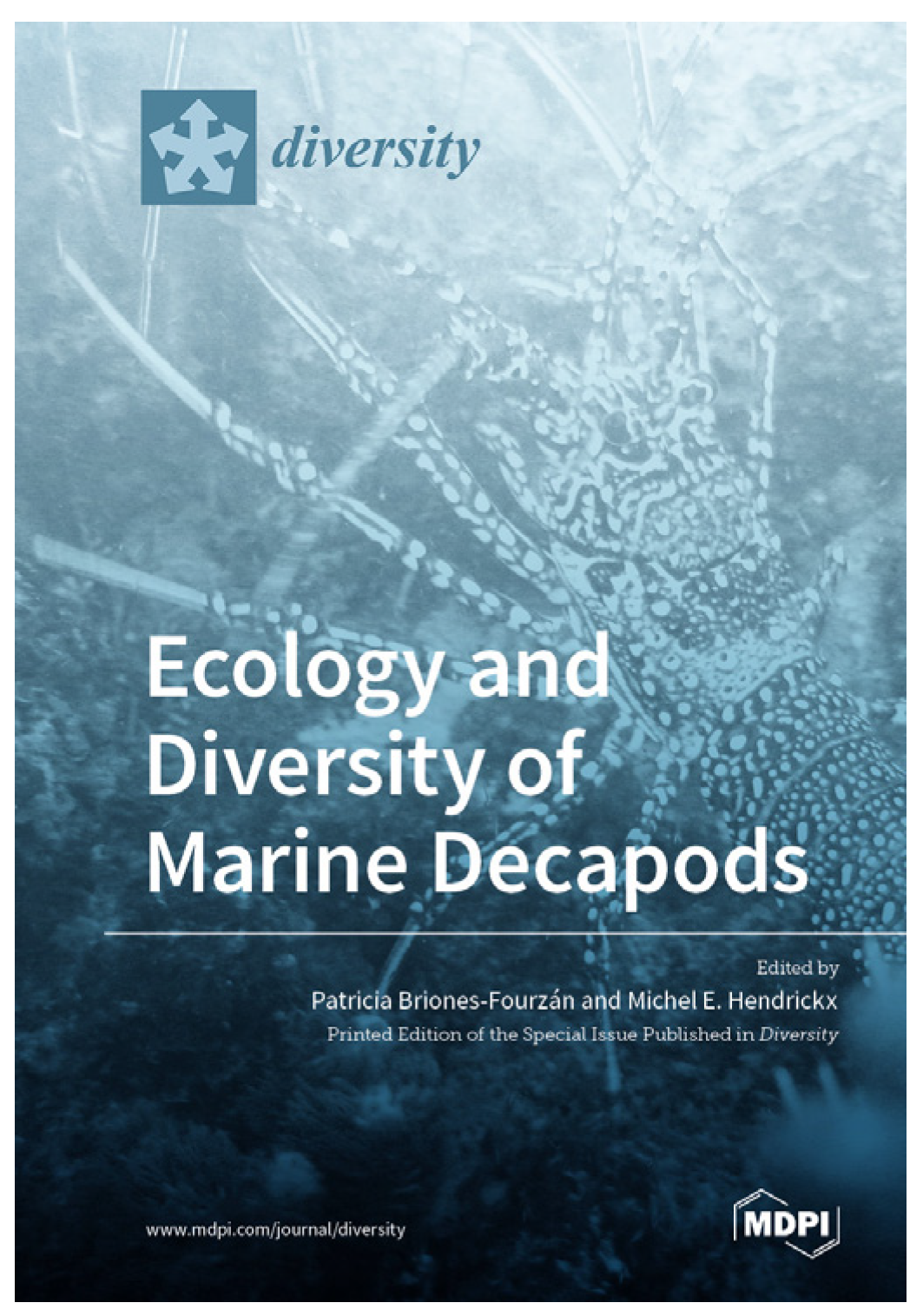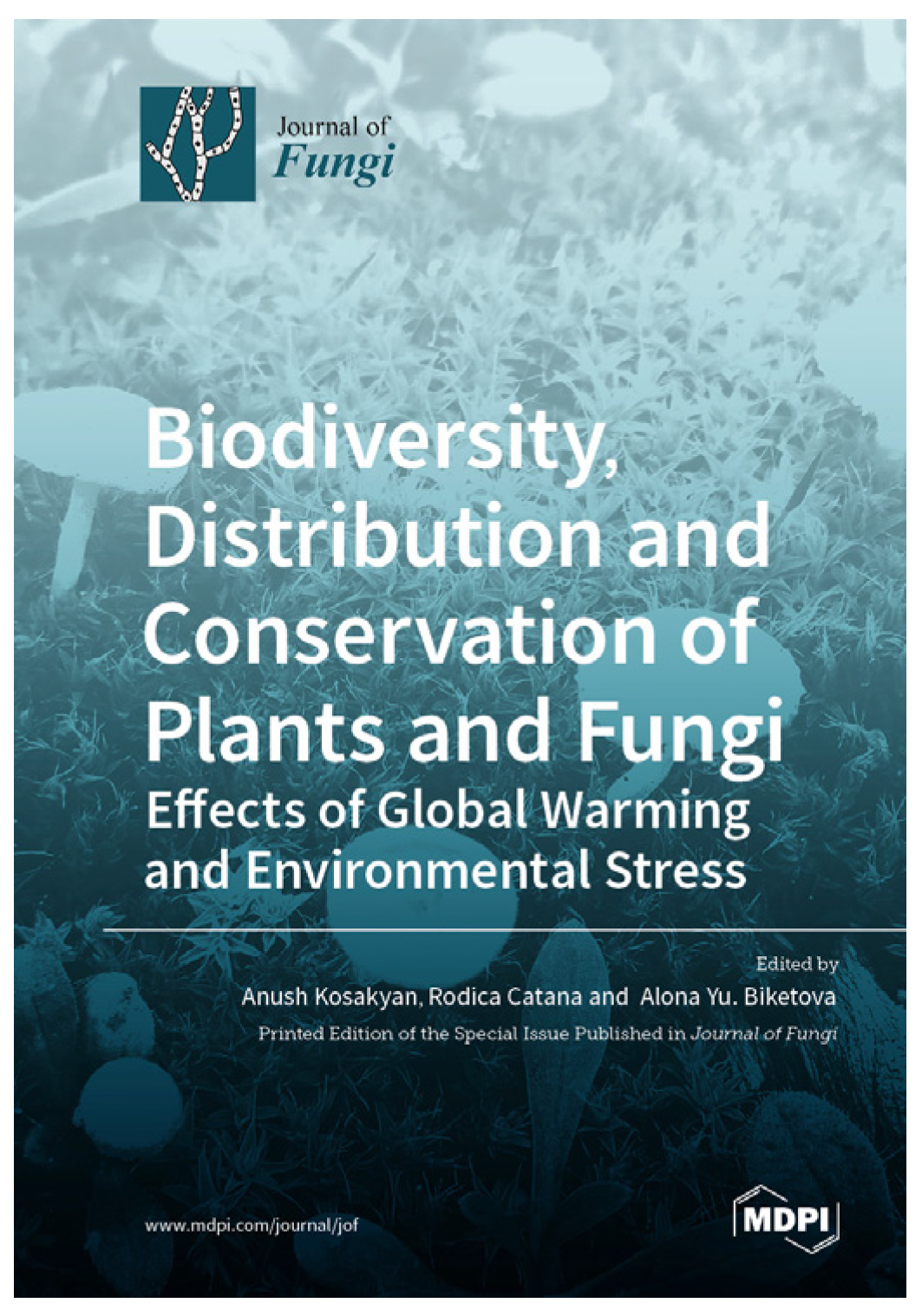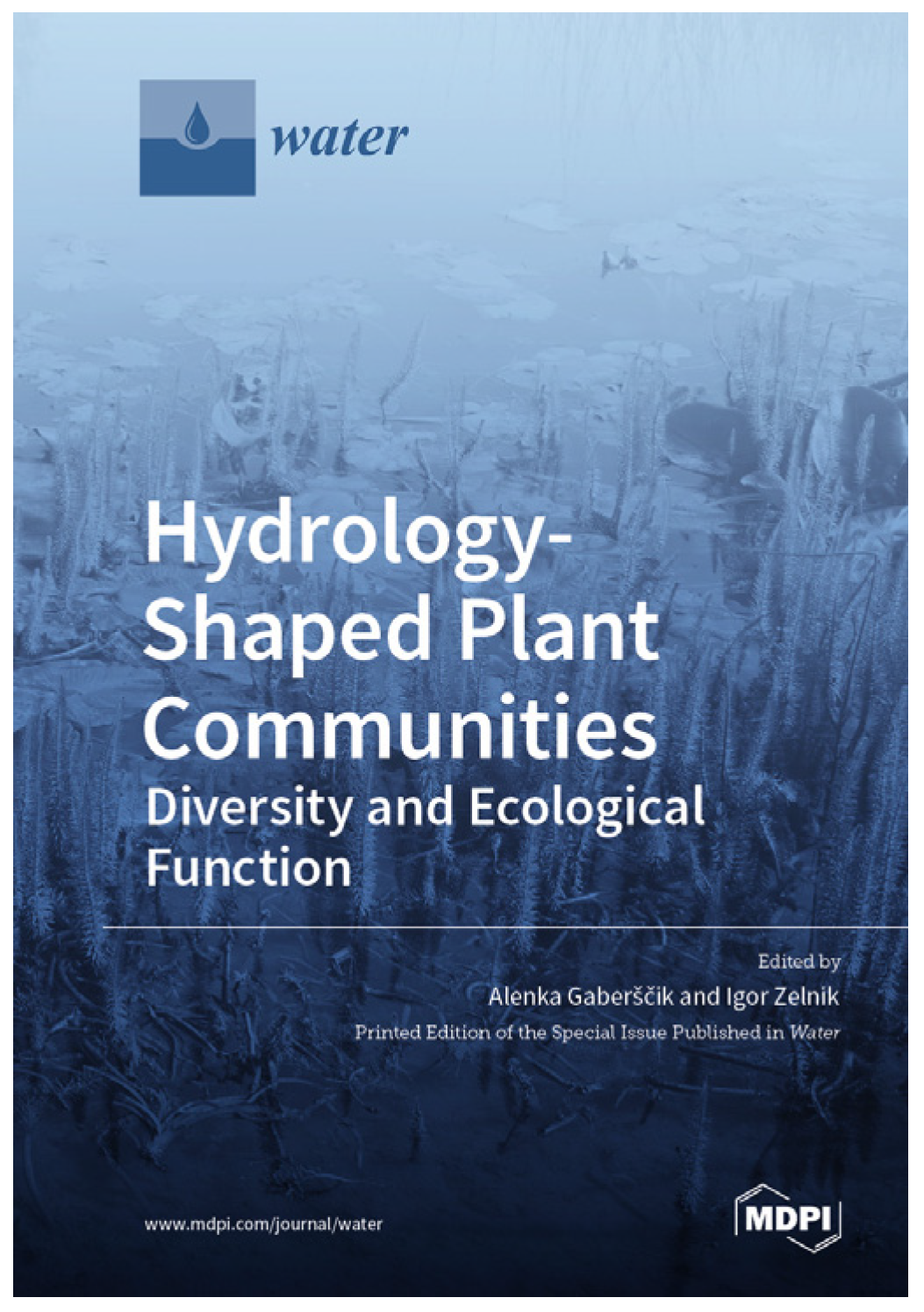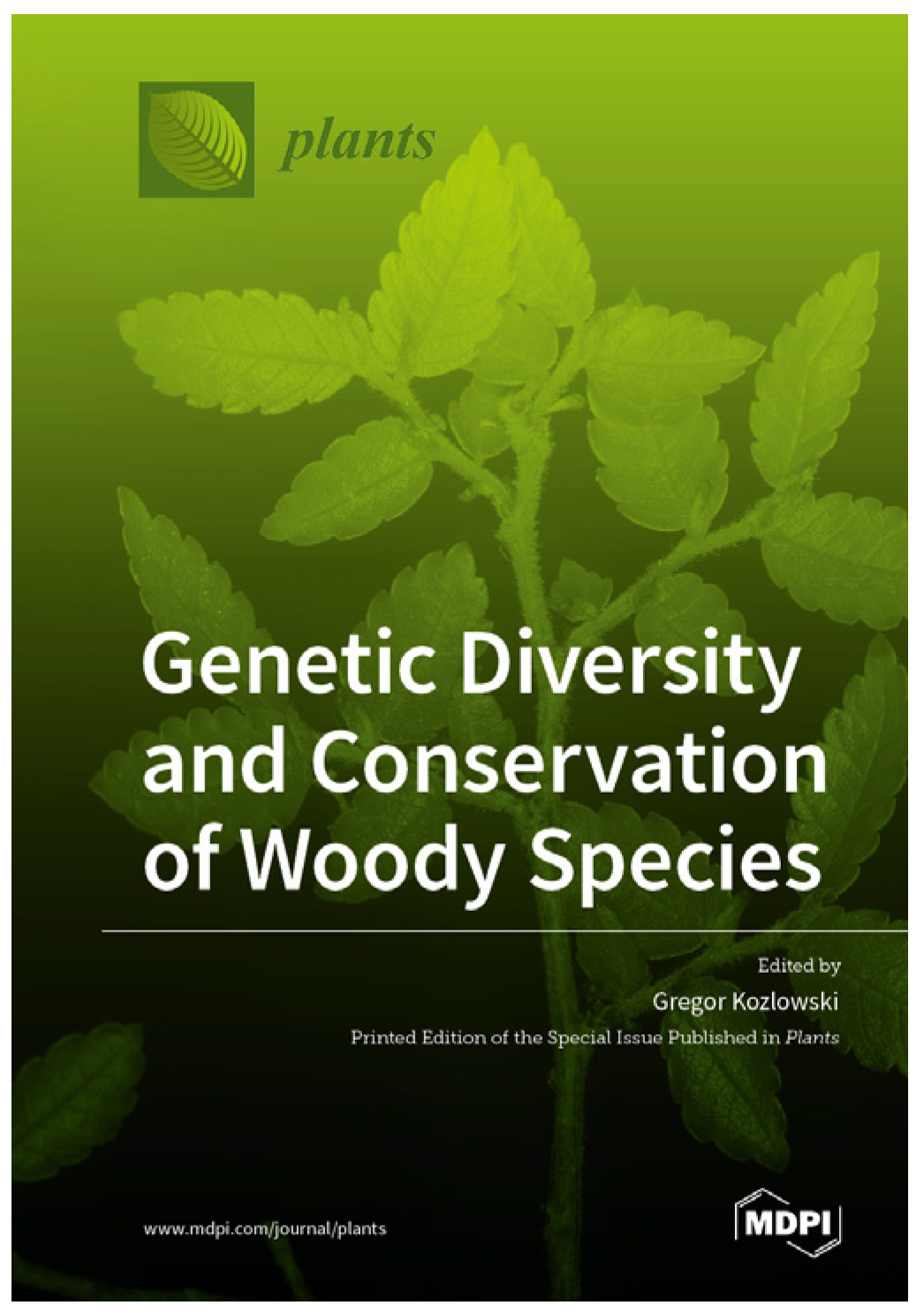
Journal Menu
► ▼ Journal Menu-
- Biology Home
- Aims & Scope
- Editorial Board
- Reviewer Board
- Topical Advisory Panel
- Instructions for Authors
- Special Issues
- Topics
- Sections & Collections
- Article Processing Charge
- Indexing & Archiving
- Editor’s Choice Articles
- Most Cited & Viewed
- Journal Statistics
- Journal History
- Journal Awards
- Society Collaborations
- Conferences
- Editorial Office
Journal Browser
► ▼ Journal BrowserNeed Help?
Announcements
28 June 2023
2022 Impact Factors for MDPI Journals
The 2022 citation metrics have been released in the Journal Citation Reports (JCR), and we’re pleased to announce the following results for MDPI journals:

We are thrilled to announce that 90% of our ranked MDPI journals, specifically 86 out of 96 (captured in the table below), are performing above average in Q1 or Q2. This year, Clarivate has expanded its Impact Factor (IF) awards to include journals in the Emerging Sources Citation Index (ESCI) and the Arts and Humanities Citation Index (AHCI), providing greater transparency for the full set of journals indexed in the Web of Science Core Collection. As a result, 111 of MDPI journals have received their first IF in 2023, with 37 journals surpassing an IF of 3.0. In total, 208 MDPI journals have been honored with an IF.
Clarivate explains that by "expanding the coverage but holding to highly selective standards, the [Impact Factor] is now a reliable indicator of trustworthiness, as well as a measure of scholarly impact, at the journal level."
Please visit our blog post where we discuss the release of the latest citation metrics with our Indexing Manager, Dr. Constanze Schelhorn, to find out what's different this time around and how to make use of different metrics available.
| Journal | Impact Factor | Rank Quartile | Category |
| Vaccines | 7.8 | Q1 | Immunology |
| Medicine, Research & Experimental | |||
| Antioxidants | 7.0 | Q1 | Food Science & Technology |
| Biochemistry & Molecular Biology | |||
| Chemistry, Medicinal | |||
| Cells | 6.0 | Q2 | Cell Biology |
| Nutrients | 5.9 | Q1 | Nutrition & Dietetics |
| International Journal of Molecular Sciences | 5.6 | Q1 | Biochemistry & Molecular Biology |
| Q2 | Chemistry, Multidisciplinary | ||
| Journal of Theoretical and Applied Electronic Commerce Research | 5.6 | Q2 | Business |
| Biomolecules | 5.5 | Q1 | Biochemistry & Molecular Biology |
| Biosensors | 5.4 | Q1 | Chemistry, Analytical |
| Instruments & Instrumentation | |||
| Q2 | Nanoscience & Nanotechnology | ||
| Fractal and Fractional | 5.4 | Q1 | Mathematics, Interdisciplinary Applications |
| Marine Drugs | 5.4 | Q1 | Chemistry, Medicinal |
| Pharmacology & Pharmacy | |||
| Pharmaceutics | 5.4 | Q1 | Pharmacology & Pharmacy |
| Nanomaterials | 5.3 | Q1 | Physics, Applied |
| Q2 | Chemistry, Multidisciplinary | ||
| Materials Science, Multidisciplinary | |||
| Nanoscience & Nanotechnology | |||
| Cancers | 5.2 | Q2 | Oncology |
| Foods | 5.2 | Q1 | Food Science & Technology |
| Polymers | 5.0 | Q1 | Polymer Science |
| Remote Sensing | 5.0 | Q1 | Geosciences, Multidisciplinary |
| Q2 | Remote Sensing | ||
| Imaging Science & Photographic Technology | |||
| Environmental Sciences | |||
| Antibiotics | 4.8 | Q1 | Pharmacology & Pharmacy |
| Q2 | Infectious Diseases | ||
| Drones | 4.8 | Q2 | Remote Sensing |
| Journal of Functional Biomaterials | 4.8 | Q2 | Engineering, Biomedical |
| Materials Science, Biomaterials | |||
| Biomedicines | 4.7 | Q1 | Pharmacology & Pharmacy |
| Q2 | Biochemistry & Molecular Biology | ||
| Medicine, Research & Experimental | |||
| Journal of Fungi | 4.7 | Q2 | Mycology |
| Microbiology | |||
| Viruses | 4.7 | Q2 | Virology |
| Bioengineering | 4.6 | Q2 | Engineering, Biomedical |
| Gels | 4.6 | Q1 | Polymer Science |
| Molecules | 4.6 | Q2 | Chemistry, Multidisciplinary |
| Biochemistry & Molecular Biology | |||
| Pharmaceuticals | 4.6 | Q2 | Pharmacology & Pharmacy |
| Chemistry, Medicinal | |||
| Toxics | 4.6 | Q1 | Toxicology |
| Q2 | Environmental Sciences | ||
| Biomimetics | 4.5 | Q1 | Engineering, Multidisciplinary |
| Q2 | Materials Science, Biomaterials | ||
| Microorganisms | 4.5 | Q2 | Microbiology |
| Plants | 4.5 | Q1 | Plant Sciences |
| Biology | 4.2 | Q2 | Biology |
| Chemosensors | 4.2 | Q2 | Instruments & Instrumentation |
| Chemistry, Analytical | |||
| Electrochemistry | |||
| Membranes | 4.2 | Q2 | Engineering, Chemical |
| Materials Science, Multidisciplinary | |||
| Chemistry, Physical | |||
| Polymer Science | |||
| Toxins | 4.2 | Q1 | Toxicology |
| Q2 | Food Science & Technology | ||
| Metabolites | 4.2 | Q2 | Biochemistry & Molecular Biology |
| Batteries | 4.0 | Q2 | Electrochemistry |
| Materials Science, Multidisciplinary | |||
| Q3 | Energy & Fuels | ||
| Catalysts | 3.9 | Q2 | Chemistry, Physical |
| Journal of Clinical Medicine | 3.9 | Q2 | Medicine, General & Internal |
| Land | 3.9 | Q2 | Environmental Studies |
| Sensors | 3.9 | Q2 | Instruments & Instrumentation |
| Chemistry, Analytical | |||
| Engineering, Electrical & Electronic | |||
| Sustainability | 3.9 | Q2 | Environmental Sciences (SCIE) |
| Environmental Studies (SSCI) | |||
| Q3 | Green & Sustainable Science & Technology (SCIE) | ||
| Green & Sustainable Science & Technology (SSCI) | |||
| Buildings | 3.8 | Q2 | Construction & Building Technology |
| Engineering, Civil | |||
| Agronomy | 3.7 | Q1 | Agronomy |
| Q2 | Plant Sciences | ||
| Fermentation | 3.7 | Q2 | Biotechnology & Applied Microbiology |
| Pathogens | 3.7 | Q2 | Microbiology |
| Agriculture | 3.6 | Q1 | Agronomy |
| Diagnostics | 3.6 | Q2 | Medicine, General & Internal |
| Genes | 3.5 | Q2 | Genetics & Heredity |
| Journal of Intelligence | 3.5 | Q2 | Psychology, Multidisciplinary |
| Lubricants | 3.5 | Q2 | Engineering, Mechanical |
| Processes | 3.5 | Q2 | Engineering, Chemical |
| Coatings | 3.4 | Q2 | Materials Science, Coatings & Films |
| Physics, Applied | |||
| Q3 | Materials Science, Multidisciplinary | ||
| ISPRS International Journal of Geo-Information | 3.4 | Q2 | Geography, Physical |
| Q3 | Computer Science, Information Systems | ||
| Remote Sensing | |||
| Materials | 3.4 | Q2 | Metallurgy & Metallurgical Engineering |
| Physics, Applied | |||
| Physics, Condensed Matter | |||
| Q3 | Materials Science, Multidisciplinary | ||
| Chemistry, Physical | |||
| Micromachines | 3.4 | Q2 | Instruments & Instrumentation |
| Physics, Applied | |||
| Chemistry, Analytical | |||
| Q3 | Nanoscience & Nanotechnology | ||
| Water | 3.4 | Q2 | Water Resources |
| Environmental Sciences | |||
| Brain Sciences | 3.3 | Q3 | Neurosciences |
| Energies | 3.2 | Q3 | Energy & Fuels |
| Fire | 3.2 | Q1 | Forestry |
| Q2 | Ecology | ||
| Life | 3.2 | Q2 | Biology |
| Current Issues in Molecular Biology | 3.1 | Q3 | Biochemistry & Molecular Biology |
| Horticulturae | 3.1 | Q1 | Horticulture |
| Animals | 3.0 | Q1 | Agriculture, Dairy & Animal Science |
| Veterinary Sciences | |||
| Insects | 3.0 | Q1 | Entomology |
| Atmosphere | 2.9 | Q3 | Meteorology & Atmospheric Sciences |
| Environmental Sciences | |||
| Electronics | 2.9 | Q2 | Engineering, Electrical & Electronic |
| Physics, Applied | |||
| Q3 | Computer Science, Information Systems | ||
| Forests | 2.9 | Q1 | Forestry |
| Inorganics | 2.9 | Q2 | Chemistry, Inorganic & Nuclear |
| Journal of Marine Science and Engineering | 2.9 | Q1 | Engineering, Marine |
| Q2 | Oceanography | ||
| Engineering, Ocean | |||
| Metals | 2.9 | Q2 | Metallurgy & Metallurgical Engineering |
| Q3 | Materials Science, Multidisciplinary | ||
| Tropical Medicine and Infectious Disease | 2.9 | Q2 | Tropical Medicine |
| Parasitology | |||
| Q3 | Infectious Diseases | ||
| Universe | 2.9 | Q2 | Astronomy & Astrophysics |
| Physics, Particles & Fields | |||
| Healthcare | 2.8 | Q2 | Health Policy & Services (SSCI) |
| Q3 | Health Care Sciences & Services (SCIE) | ||
| Applied Sciences | 2.7 | Q2 | Engineering, Multidisciplinary |
| Physics, Applied | |||
| Q3 | Chemistry, Multidisciplinary | ||
| Materials Science, Multidisciplinary | |||
| Crystals | 2.7 | Q2 | Crystallography |
| Q3 | Materials Science, Multidisciplinary | ||
| Entropy | 2.7 | Q2 | Physics, Multidisciplinary |
| Magnetochemistry | 2.7 | Q2 | Chemistry, Inorganic & Nuclear |
| Q3 | Chemistry, Physical | ||
| Materials Science, Multidisciplinary | |||
| Symmetry | 2.7 | Q2 | Multidisciplinary Sciences |
| Actuators | 2.6 | Q2 | Instruments & Instrumentation |
| Engineering, Mechanical | |||
| Aerospace | 2.6 | Q1 | Engineering, Aerospace |
| Behavioral Sciences | 2.6 | Q2 | Psychology, Multidisciplinary |
| Current Oncology | 2.6 | Q3 | Oncology |
| Machines | 2.6 | Q2 | Engineering, Mechanical |
| Q3 | Engineering, Electrical & Electronic | ||
| Medicina | 2.6 | Q3 | Medicine, General & Internal |
| Separations | 2.6 | Q3 | Chemistry, Analytical |
| Minerals | 2.5 | Q2 | Mining & Mineral Processing |
| Mineralogy | |||
| Geochemistry & Geophysics | |||
| Children | 2.4 | Q2 | Pediatrics |
| Diversity | 2.4 | Q2 | Biodiversity Conservation |
| Q3 | Ecology | ||
| Journal of Cardiovascular Development and Disease | 2.4 | Q3 | Cardiac & Cardiovascular Systems |
| Mathematics | 2.4 | Q1 | Mathematics |
| Photonics | 2.4 | Q3 | Optics |
| Veterinary Sciences | 2.4 | Q1 | Veterinary Sciences |
| Fishes | 2.3 | Q2 | Marine & Freshwater Biology |
| Fisheries | |||
| Axioms | 2.0 | Q2 | Mathematics, Applied |
| Systems | 1.9 | Q2 | Social Sciences, Interdisciplinary |
| Tomography | 1.9 | Q3 | Radiology, Nuclear Medicine & Medical Imaging |
Note: The Journal of Personalized Medicine's Impact Factor was omitted in the original release and will be assigned separately. Please find the data on the journal webpage in due course.
Source: 2022 Journal Impact Factors, Journal Citation Reports TM (Clarivate, 2023)
27 June 2023
Biology | Top Cited Papers in 2021–2022
1. “The Unfolded Protein Response: An Overview”
by Adam Read and Martin Schröder
Biology 2021, 10(5), 384; https://doi.org/10.3390/biology10050384
Available online: https://www.mdpi.com/2079-7737/10/5/384
2. “Reactive Oxygen Species, Antioxidant Responses and Implications from a Microbial Modulation Perspective”
by Peiman Zandi and Ewald Schnug
Biology 2022, 11(2), 155; https://doi.org/10.3390/biology11020155
Available online: https://www.mdpi.com/2079-7737/11/2/155
3. “Genomic Selection for End-Use Quality and Processing Traits in Soft White Winter Wheat Breeding Program with Machine and Deep Learning Models”
by Karansher Singh Sandhu, Meriem Aoun, Craig F. Morris and Arron H. Carter
Biology 2021, 10(7), 689; https://doi.org/10.3390/biology10070689
Available online: https://www.mdpi.com/2079-7737/10/7/689
4. “Toward a Better Testing Paradigm for Developmental Neurotoxicity: OECD Efforts and Regulatory Considerations”
by Magdalini Sachana, Timothy J. Shafer and Andrea Terron
Biology 2021, 10(2), 86; https://doi.org/10.3390/biology10020086
Available online: https://www.mdpi.com/2079-7737/10/2/86
5. “A Layered View on Focal Adhesions”
by Karin Legerstee and Adriaan B. Houtsmuller
Biology 2021, 10(11), 1189; https://doi.org/10.3390/biology10111189
Available online: https://www.mdpi.com/2079-7737/10/11/1189
6. “Tomatoes: An Extensive Review of the Associated Health Impacts of Tomatoes and Factors That Can Affect Their Cultivation”
by Edward J. Collins, Cressida Bowyer, Audrey Tsouza and Mridula Chopra
Biology 2022, 11(2), 239; https://doi.org/10.3390/biology11020239
Available online: https://www.mdpi.com/2079-7737/11/2/239
7. “Overview and Update on Extracellular Vesicles: Considerations on Exosomes and Their Application in Modern Medicine”
by Maria Antonietta Di Bella
Biology 2022, 11(6), 804; https://doi.org/10.3390/biology11060804
Available online: https://www.mdpi.com/2079-7737/11/6/804
8. “Blood Performance: A New Formula for Fish Growth and Health”
by Moha Esmaeili
Biology 2021, 10(12), 1236; https://doi.org/10.3390/biology10121236
Available online: https://www.mdpi.com/2079-7737/10/12/1236
9. “Chronic Toxicity of Primary Metabolites of Chloroacetamide and Glyphosate to Early Life Stages of Marbled Crayfish Procambarus virginalis”
by Nikola Tresnakova, Jan Kubec, Alzbeta Stara, Eliska Zuskova, Caterina Faggio, Antonin Kouba and Josef Velisek
Biology 2022, 11(6), 927; https://doi.org/10.3390/biology11060927
Available online: https://www.mdpi.com/2079-7737/11/6/927
10. “The Role of TLR2 in Infectious Diseases Caused by Mycobacteria: From Cell Biology to Therapeutic Target”
by Wanbin Hu and Herman P. Spaink
Biology 2022, 11(2), 246; https://doi.org/10.3390/biology11020246
Available online: https://www.mdpi.com/2079-7737/11/2/246
7 June 2023
Welcoming New Editorial Board Members of Biology
We are pleased to announce that five new scholars were appointed Editorial Board Members (EBMs) of the journal Biology (ISSN: 2079-7737) in May 2023.
| Name | Section | Affiliation |
| Dr. Simona Panni | “Bioinformatics” | Università della Calabria, Italy |
| Dr. Olivier White | “Biophysics” | Université de Bourgogne, France |
| Dr. Carla Lintas | “Genetics and Genomics” | Università Campus Bio-Medico, Italy |
| Dr. Sven Würtz | “Conservation Biology and Biodiversity” | Leibniz Institute of Freshwater Ecology and Inland Fisheries, Germany |
| Dr. Nadine Lemaître | “Infection Biology” | Université de Picardie Jules Verne, France |
Further details about the Editorial Board can be found at the following link: https://www.mdpi.com/journal/biology/editors.
We wish our new members every success in both their research and the development of the journal.
Additionally, Biology is recruiting prestigious scholars worldwide to join our Editorial Board. To apply for this position, recommend potential candidates, or request further information, please contact the Biology Editorial Office (biology@mdpi.com) with the following two files attached:
- A full academic CV;
- A short cover letter that details your interest in and enthusiasm for the position.
Biology Editorial Office
19 May 2023
2023 International Day for Biological Diversity

The International Day for Biological Diversity will be celebrated on 22 May 2023, under the theme “From Agreement to Action: Build Back Biodiversity”, which aims to raise awareness and understanding of biodiversity issues. Biodiversity refers to the diversity of all life forms on Earth, including genetic, species, and ecosystem diversity. Biological diversity resources are the pillars upon which we build civilizations; however, the loss of biodiversity threatens everything, including our health. We hope that the established MDPI journals on life sciences and biology, including Biology, Diversity, Fishes, Birds, Insects, Water, Forests, Grasses, Life, Seeds, Agriculture, and Agronomy, will provide suitable communication platforms. The aim is to strengthen scientific cooperation in response to the International Day for Biological Diversity and to embrace the potential to promote sustainable development.


“Avifaunal Diversity and Abundance in the Proposed Sarasalai Mangrove Reserve, Jaffna, Sri Lanka”
by Nitharsan Aloysius, Shashi Madhushanka and Chathuri Chandrika
Birds 2023, 4(1), 103-116; https://doi.org/10.3390/birds4010009
“Perils of Underestimating Species Diversity: Revisiting Systematics of Psammocambeva Catfishes (Siluriformes: Trichomycteridae) from the Rio Paraíba do Sul Basin, South-Eastern Brazil”
by Wilson J. E. M. Costa, José Leonardo Mattos, Paulo J. Vilardo, Pedro F. Amorim and Axel M. Katz
Taxonomy 2022, 2(4), 491-523; https://doi.org/10.3390/taxonomy2040032
“Environmental DNA Metabarcoding: A Novel Contrivance for Documenting Terrestrial Biodiversity”
by Shahnawaz Hassan, Sabreena, Peter Poczai, Bashir Ah Ganai, Waleed Hassan Almalki, Abdul Gafur and R. Z. Sayyed
Biology 2022, 11(9), 1297; https://doi.org/10.3390/biology11091297
“Dam Construction Impacts Fish Biodiversity in a Subtropical River Network, China”
by Xiongjun Liu, Julian D. Olden, Ruiwen Wu, Shan Ouyang and Xiaoping Wu
Diversity 2022, 14(6), 476; https://doi.org/10.3390/d14060476
“Human Communities in Protected Natural Areas and Biodiversity Conservation”
by Elizabeth Olmos-Martínez, Heidi Leticia Romero-Schmidt, María del Carmen Blázquez, Camilo Arias-González and Alfredo Ortega-Rubio
Diversity 2022, 14(6), 441; https://doi.org/10.3390/d14060441
“Effects of Habitat Fragmentation on the Population Structure and Genetic Diversity of Erythroneurini in the Typical Karst Rocky Ecosystem, Southwest China”
by Chen Xiaoxiao, Jia Jiang, Ni Zhang, Xiao Yang, Yongkuan Chi and Yuehua Song
Insects 2022, 13(6), 499; https://doi.org/10.3390/insects13060499
“Application of Ecological Restoration Technologies for the Improvement of Biodiversity and Ecosystem in the River”
by Li Pushuang, Dan Li, Xiaoqing Sun, Zhaosheng Chu, Ting Xia and Binghui Zheng
Water 2022, 14(9), 1402; https://doi.org/10.3390/w14091402
“Conservation-Status Gaps for Marine Top-Fished Commercial Species”
by Imanol Miqueleiz, Rafael Miranda, Arturo Hugo Ariño and Elena Ojea
Fishes 2022, 7(1), 2; https://doi.org/10.3390/fishes7010002

| Special Issue: “Elasmobranch Biodiversity, Conservation and Management” Edited by: Dr. Fabrizio Serena and Dr. Fabio Fiorentino |
Special Issue: “Systematics, Evolution, and Diversity of Dance Flies (Diptera, Empidoidea)” Edited by: Dr. Christophe Daugeron |
||
| Special Issue: “Taxonomy, Biodiversity and Ecology of Mediterranean Plants” Edited by: Dr. Saverio Sciandrello, Dr. Carmelo Maria Musarella and Dr. Ricardo Quinto-Canas |
Special Issue: “Macro-Ecology, Macro-Evolution and Conservation of Animals and Plants” Edited by: Prof. Dr. Youhua Chen, Prof. Dr. Kaiwen Pan and Prof. Dr. Xiaohong Chen |
||

International Day for Biological Diversity
Date and time: 22 May 2023, 9–11 a.m. (CEST)
This is a free webinar. After registering, you will receive a confirmation email containing information on how to join the webinar.

15 May 2023
Meet Us at the 10th FEMS Congress of European Microbiologists, 9–13 July 2023, Hamburg, Germany
FEMS was established in 1974 and is now an active and diverse federation of 55 European learned societies that includes around 30,000 professionals who are committed to advancing microbiology for the benefit of society. Located in 38 European countries, around half of these professionals are early career researchers, and the remainder include industry scientists, established academics, educators and campaigners. The 10th FEMS Congress of European Microbiologists will take place in Hamburg, Germany, from 9 to 13 July 2023. This event is dedicated to showcasing the latest developments in microbiology and to connecting microbiologists from all over the world.
Main topics:
- Environmental Microbiology & Ecology;
- Biotechnology & Synthetic Microbiology;
- Food Microbiology;
- Infection Biology & Pathogens;
- Infectious Diseases;
- Taxonomy & Systematics;
- Genetics & Genomics;
- Virology;
- Microbiology Education & Profession;
- Molecular Microbiology & Biochemistry.
The following MDPI journals will be represented:
- Microorganisms;
- Veterinary Sciences;
- Foods;
- MPs;
- CIMB;
- Diversity;
- Biology;
- Fermentation;
- Microbiology Research;
- JoF;
- Pathogens;
- Antibiotics;
- Biomolecules.
If you are attending this conference, please feel free to start an online conversation with us. Our delegates look forward to meeting you at booth #B18 in person and answering any questions you may have. For more information about the conference and our virtual booth, please visit the following link: https://www.fems2023.org/.
11 May 2023
Welcoming New Editorial Board Members of Biology
We are pleased to announce that eight new scholars were appointed Editorial Board Members (EBMs) of the journal Biology (ISSN: 2079-7737) in April 2023. We wish our new members success in both their research and in the development of the journal.
| Name | Section | Affiliation |
| Dr. Bo Song | “Ecology” | Clemson University, USA |
| Dr. Alexander Lukeneder | “Evolutionary Biology” | Natural History Museum Vienna, Austria |
| Prof. Dr. Nir Yakoby | “Genetics and Genomics” | Rutgers University, USA |
| Dr. Edoardo Calizza | “Ecology” | Sapienza University of Rome, Italy |
| Dr. Chunping Zhang | “Reproductive Biology” | Nanchang University, China |
| Dr. Helen L. Fillmore | “Neuroscience” | University of Portsmouth, UK |
| Prof. Dr. Jing Li | “Conservation Biology and Biodiversity” | Sichuan University, China |
| Dr. Kristine E. Yoder | “Cancer Biology” | The Ohio State University, USA |
Further details about the Editorial Board can be found at the following link: https://www.mdpi.com/journal/biology/editors.
Additionally, Biology is recruiting prestigious scholars from around the world to join our Editorial Board. To apply for this position, recommend potential candidates, or request further information, please contact the Biology Editorial Office (biology@mdpi.com) with the following two files attached:
- A full academic CV;
- A short cover letter that details your interest in and enthusiasm for the position.
Biology Editorial Office
8 May 2023
Meet Us at the 31st European Biomass Conference & Exhibition (EUBCE 2023), 05–08 June 2023, Bologna, Italy

MDPI will attend the 31st European Biomass Conference & Exhibition (EUBCE 2023) as an exhibitor. This meeting will be held in Bologna, Italy, from 5 to 8 June 2023.
EUBCE is the largest biomass conference and exhibition in the world. Each year, EUBCE brings together the greatest minds and latest advancements in biomass, with the aim of accelerating research and market uptake across the globe. During the conference, over 2,000 experts from both academia and industry share and discuss groundbreaking ideas, technologies, applications, and solutions for the sourcing, production, and utility of biomass. The scientific program is coordinated by the Joint Research Centre of the European Commission. Since its 30th edition, the event has been complemented by the Circular Bio-Based Europe Joint Undertaking, aiming at identifying innovation, stimulating investment, and mobilizing the bio-based industry sector. This is an excellent opportunity to address even more stakeholders globally through the conference.
The following MDPI journals will be represented:
- Sustainability;
- Energies;
- Biomass;
- Environment;
- Materials;
- Minerals;
- Biology;
- Recycling;
- Atmosphere;
- Earth.
If you are attending this conference, please feel free to start a conversation with us at our booth #36. Our delegates look forward to meeting you in person and answering any questions that you may have.
For more information about the conference, please visit https://www.eubce.com/.
23 March 2023
Biology | Editor’s Choice Articles

Editor’s Choice Articles are based on recommendations by the scientific editors of MDPI journals from around the world. Editors select a small number of articles recently published in the journal that they believe will be particularly interesting to readers, or important in the respective research area. The aim is to provide a snapshot of some of the most exciting work published in the various research areas of the journal.
We are pleased to present the Editor’s Choice Articles published in Biology (ISSN 2079-7737), and we hope that these papers can help and provide a reference for your academic research. A carefully curated list of high-quality articles can be found below.
1. “Butterfly Wing Color Pattern Modification Inducers May Act on Chitin in the Apical Extracellular Site: Implications in Morphogenic Signals for Color Pattern Determination”
by Joji M. Otaki and Yugo Nakazato
Biology 2022, 11(11), 1620; https://doi.org/10.3390/biology11111620
Available online: https://www.mdpi.com/2079-7737/11/11/1620
2. “Visual Monitoring Strategies of Sentinels in a Cooperative Breeder”
by Guy Beauchamp and Reed Bowman
Biology 2022, 11(12), 1769; https://doi.org/10.3390/biology11121769
Available online: https://www.mdpi.com/2079-7737/11/12/1769
3. “Endophytic Pseudomonas sp. from Agave palmeri Participate in the Rhizophagy Cycle and Act as Biostimulants in Crop Plants”
by Qiuwei Zhang, Kathryn L. Kingsley and James F. White
Biology 2022, 11(12), 1790; https://doi.org/10.3390/biology11121790
Available online: https://www.mdpi.com/2079-7737/11/12/1790
4. “Linoleate-Enrichment of Mitochondrial Cardiolipin Molecular Species Is Developmentally Regulated and a Determinant of Metabolic Phenotype”
by Genevieve C. Sparagna, Raleigh L. Jonscher, Sydney R. Shuff, Elisabeth K. Phillips, Cortney E. Wilson, Kathleen C. Woulfe, Anastacia M. Garcia, Brian L. Stauffer and Kathryn C. Chatfield
Biology 2023, 12(1), 32; https://doi.org/10.3390/biology12010032
Available online: https://www.mdpi.com/2079-7737/12/1/32
5. “An Overview of D7 Protein Structure and Physiological Roles in Blood-Feeding Nematocera”
by Patricia H. Alvarenga and John F. Andersen
Biology 2023, 12(1), 39; https://doi.org/10.3390/biology12010039
Available online: https://www.mdpi.com/2079-7737/12/1/39
6. “Rapid Response to Experimental Warming of a Microbial Community Inhabiting High Arctic Patterned Ground Soil”
by Kevin K. Newsham, Birgitte Kortegaard Danielsen, Elisabeth Machteld Biersma, Bo Elberling, Guy Hillyard, Priyanka Kumari, Anders Priemé, Cheolwoon Woo and Naomichi Yamamoto
Biology 2022, 11(12), 1819; https://doi.org/10.3390/biology11121819
Available online: https://www.mdpi.com/2079-7737/11/12/1819
7. “A Biomarker Approach as Responses of Bioindicator Commercial Fish Species to Microplastic Ingestion: Assessing Tissue and Biochemical Relationships”
by Xavier Capó, Merce Morató, Carme Alomar, Beatriz Rios-Fuster, Maria Valls, Montserrat Compa and Salud Deudero
Biology 2022, 11(11), 1634; https://doi.org/10.3390/biology11111634
Available online: https://www.mdpi.com/2079-7737/11/11/1634
8. “Brain-Derived Estrogen and Neurological Disorders”
by Darrell W. Brann, Yujiao Lu, Jing Wang, Gangadhara R. Sareddy, Uday P. Pratap, Quanguang Zhang, Rajeshwar R. Tekmal and Ratna K. Vadlamudi
Biology 2022, 11(12), 1698; https://doi.org/10.3390/biology11121698
Available online: https://www.mdpi.com/2079-7737/11/12/1698
9. “Wide-Field Calcium Imaging of Neuronal Network Dynamics In Vivo”
by Angela K. Nietz, Laurentiu S. Popa, Martha L. Streng, Russell E. Carter, Suhasa B. Kodandaramaiah and Timothy J. Ebner
Biology 2022, 11(11), 1601; https://doi.org/10.3390/biology11111601
Available online: https://www.mdpi.com/2079-7737/11/11/1601
10. “Methionine Metabolism Is Down-Regulated in Heart of Long-Lived Mammals”
by Natalia Mota-Martorell, Mariona Jové, Rebeca Berdún, Èlia Òbis, Gustavo Barja and Reinald Pamplona
Biology 2022, 11(12), 1821; https://doi.org/10.3390/biology11121821
Available online: https://www.mdpi.com/2079-7737/11/12/1821
We would like to take this opportunity to thank all the research groups that submitted manuscripts to Biology.
13 March 2023
MDPI’s Newly Launched Journals in December 2022
As a leading open access publisher, MDPI provides scholars with a high-quality and rich academic exchange platform by continuously expanding into new and exciting research areas.
In December 2022, MDPI launched five new journals, covering multiple subjects such as life sciences, biology, medicine and pharmacology, social sciences and humanities. These new journals are being edited by established scholars across the world.
|
Journal |
Founding Editor-in-Chief |
Journal Topics (Selected) |
|
Prof. Dr. Fabio Gresta, University of Messina, Italy| Editorial | view inaugural issue |
grass/forage/turf production; grassland management; pasture monitoring; grazing and livestock; grass agro-ecosystems| view journal scope | submit an article |
|
|
Prof. Dr. Christos G. Athanassiou, University of Thessaly, Greece| Editorial | view inaugural issue |
pesticides; fungicides; herbicides; fertilizers; soil conditioners| view journal scope | submit an article |
|
|
Prof. Dr. Stephen H. Safe, Texas A&M University, USA| Editorial | view inaugural issue |
receptor structure; receptor function; receptor signaling; receptor expression and regulation; receptor interactions with drugs| view journal scope | submit an article |
|
|
Dr. Jean Jacques Vanden Eynde, University of Mons-UMONS, Belgium| Editorial | view inaugural issue |
drug discovery; medicinal chemistry; preclinical and clinical research; marketed drugs; intellectual property and regulatory affairs| view journal scope | submit an article |
|
|
Prof. Dr. Heather Kanuka, University of Alberta, Canada| Editorial | view inaugural issue |
higher education; tertiary education; policy and practice in higher education; educational leadership in higher education; educational administration and management in higher education| view journal scope | submit an article |
If you are interested in creating more open access journals with us to publish cutting-edge research, please send your journal proposal application to newjournal-committee@mdpi.com.
7 March 2023
Displaying Co-Authors’ Email Addresses on the Webpage of Published Papers
MDPI is pleased to announce that we now display the co-authors’ email addresses in addition to the corresponding author’s email address on the webpage of published papers, protected by Captcha. For more information about this change, please visit the journal’s instructions for authors page.
We believe this change will facilitate academic discussions and advance our cause of open science and research. The corresponding authors are responsible for communicating with their co-authors and indicating in our system (https://susy.mdpi.com/) if co-authors would prefer for their email addresses not to be displayed.
























